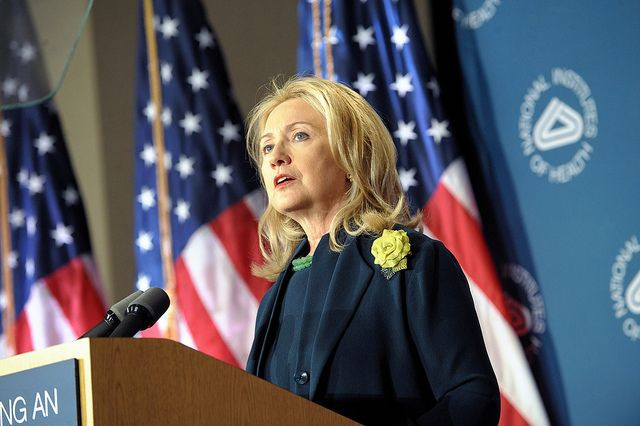U.S. Launches Strategy to Wipe Out AIDS

United States Secretary of State Hillary Clinton announced a policy to achieve an AIDS-free generation in the near future.
In a speech at the National Institutes of Health, Clinton said the U.S. will commit an additional $60 million to the more than $50 million that already granted to develop AIDS prevention tactics. Those funds will scale up a strategy of "combination prevention" in parts of four countries in Sub-Saharan Africa.
"At a time when people are raising questions about America’s role in the world, our leadership in global health reminds them who we are and what we do, that we are the nation that has done more than any other country in history to save the lives of millions of people beyond our borders," Clinton said on Tuesday.
Since AIDS was discovered in 1981 it has killed 30 million people around the world and 34 million are living with HIV today, Clinton said.
Clinton described the U.S. strategy to get to an AIDS-free generation as a "combination prevention" which combines three interventions: ending mother-to-child transmission, voluntary medical male circumcision, and drugs for people living with HIV/AIDS.
"Interventions like these can’t be successful in isolation. They work best when combined with condoms, counseling and testing, and other effective prevention interventions," Clinton said.
Among some of the achievements that the U.S. has on the fight against AIDS, Clinton recalled that in 2010, The Bush Administration's President’s Emergency Plan for AIDS Relief (PEPFAR) helped prevent 114,000 babies from being born with HIV and a global plan aims to cut new infections among children by 2015.
Voluntary male circumcision has reduced the risk of female-to-male transmission by more than 50 percent in the past few years, Clinton said.
Since 2007, some 1,000,000 men around the world have been circumcised for HIV prevention. Three fourths of these procedures have been funded by the U.S. In Kenya and Tanzania alone, during special campaigns, clinicians perform more than 35,000 circumcisions a month, Clinton noted.
An AIDS-free generation would be when virtually no children are born with the virus; teenagers and adults are at far lower risk of becoming infected than they would be today; and if they do acquire HIV, they have access to treatment that helps prevent them from developing AIDS and passing the virus on to others.
"Now, HIV may be with us well into the future. But the disease that it causes need not be." Clinton said.
Published by Medicaldaily.com



























